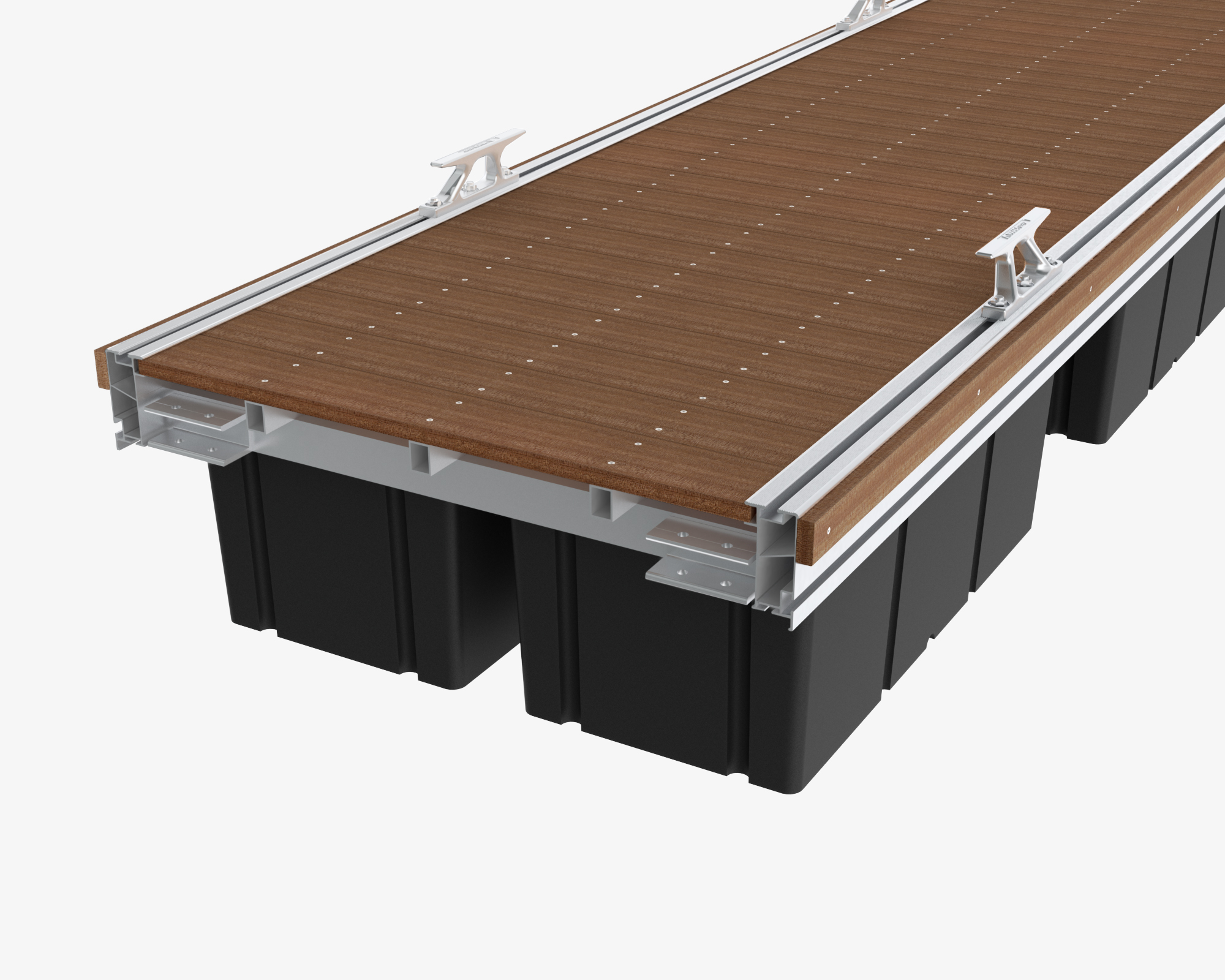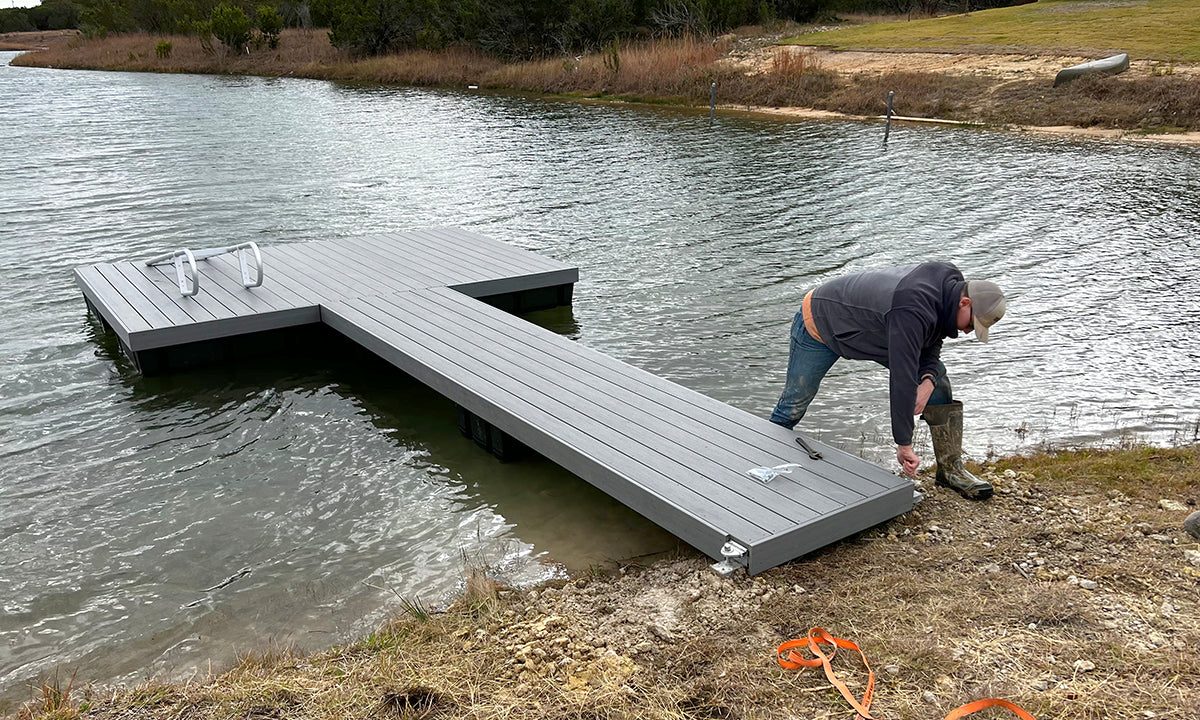The Ultimate Overview to Picking the Ideal Floating Docks
Picking the suitable floating dock requires a comprehensive understanding of various aspects that influence both efficiency and durability. Aspects such as dock types, materials, and essential features considerably influence your decision-making process. In addition, factors to consider around setup and budget can further complicate the option. By analyzing these facets systematically, one can make certain an investment that not only satisfies instant demands however likewise improves total building worth. As we check out these crucial components, it comes to be clear that the best selections can bring about a lasting and practical option tailored to your particular needs.
Understanding Floating Dock Types
When picking a floating dock, it is essential to comprehend the numerous types offered, as each offers unique functions and applications. Floating docks largely come under three classifications: modular, fixed, and pontoon docks.
Modular docks are composed of private areas that can be quickly put together or reconfigured, making them ideal for altering water levels and diverse uses, such as business procedures or recreational activities. Their flexibility allows for personalization based on certain requirements.

Pontoon docks are characterized by their resilient framework, often made up of several pontoons that supply stability and support. They are specifically well-suited for bigger vessels and are commonly utilized in marinas or for beachfront residential properties. Recognizing these types aids in selecting the most suitable floating dock to meet particular demands, making certain ideal capability and safety.
Secret Materials for Sturdiness
Picking the ideal materials for floating docks substantially effects their durability and long life. The most typical products consist of wood, plastic, steel, and composite materials, each offering distinctive benefits and limitations.
Timber, often preferred for its visual allure, needs routine upkeep to stand up to moisture and degeneration. Pressure-treated lumber can boost resistance to rot, but it might still be at risk to pests and weathering.

Plastic docks, constructed from high-density polyethylene (HDPE), are immune to deterioration, UV radiation, and effect, making them a preferred selection for seaside environments. Their light-weight nature also helps with very easy setup and relocation.
Steel docks, typically built from aluminum or galvanized steel, offer extraordinary strength and toughness. They are immune to deterioration, especially when dealt with, yet may require added insulation to stop heat build-up in hot climates.
Composite materials, incorporating timber fibers and plastics, deliver the benefits of both timber and plastic, resisting dampness and fading while calling for very little maintenance. - floating docks
Inevitably, the option of products ought to align with ecological problems, intended use, and upkeep choices to guarantee the floating dock continues to be functional and visually pleasing gradually.
Important Features to Consider
While the selection of materials is vital, considering vital functions for floating docks is similarly crucial to guarantee optimum efficiency and customer satisfaction. One vital feature to analyze is the dock's buoyancy ability, which determines just how much weight it can sustain without immersing. floating dock builder. This is vital for suiting watercrafts, individual boat, and even leisure activities
Furthermore, mobility is a substantial factor to consider. Depending on your requirements, you might desire a dock that is very easy to take apart and move, click for more info especially if you plan to relocate it seasonally. Stability is an additional necessary feature; a well-designed floating dock should reduce motion triggered by wind and water currents, supplying a secure system for users.
Security attributes, such as non-slip surfaces and rounded edges, are likewise essential to avoid mishaps, especially in damp conditions. Take into consideration the schedule of devices, such as bumpers, ladders, and cleats, which can enhance the performance of your dock.
Setup and Maintenance Tips
Establishing up and preserving a drifting dock requires mindful preparation and interest to detail to ensure its longevity and optimum efficiency. Begin by selecting a proper area that lessens direct exposure to strong currents and waves, which can create deterioration. Make sure that the water depth suffices for the dock's height and that it is anchored firmly to avoid activity.
During installment, follow the supplier's guidelines closely, as inappropriate assembly can endanger stability. Usage top notch materials immune to rust, such as light weight aluminum or dealt with wood, to improve durability. Consistently evaluate all elements, consisting of floats, adapters, and securing systems, for signs of damages or wear.
Maintenance is crucial for prolonging the life of your dock. Tidy the surface areas periodically to prevent algae buildup and check for any type of loosened installations that may call for firm. Ensure they continue to be free and undamaged from punctures if your dock uses flotation protection gadgets. Additionally, consider applying safety coatings to wooden elements to lower weathering results. By adhering to these installation and maintenance tips, you can enjoy a trusted and practical floating dock for years to come.
Budgeting for Your Dock
Budgeting for your dock is a critical step that can significantly influence your general fulfillment and investment in a waterside property. Establishing a clear spending plan aids you navigate the numerous options available and guarantees you make informed choices that straighten with your economic capabilities.
Begin by establishing the dimension and layout of the dock you need, as these elements will greatly affect the cost. Floating docks can differ significantly in cost, depending on products, buoyancy, and features like devices and ramps. Research study various manufacturers and distributors to compare rates and comprehend the marketplace worth.
In addition to preliminary prices, think about recurring expenses such as upkeep, insurance, and possible fixings. Designate funds for these repeating expenses to avoid surprises investigate this site down the line. It's also sensible to budget plan for any kind of required licenses or evaluations, which may be needed by neighborhood policies.
Lastly, bear in mind the possible roi. A well-planned dock can enhance your residential or commercial property's value and appeal, offering a favorable financial effect in the lengthy term. By budgeting effectively, you can guarantee that your dock fulfills your requirements without endangering your monetary security.
Verdict
To conclude, picking the suitable floating dock necessitates a detailed examination of numerous variables, including dock kinds, products, important attributes, and installment processes. Prioritizing sturdiness and compliance with neighborhood regulations inevitably boosts capability and residential or commercial property worth. Mindful factor to consider of budgetary constraints will certainly additionally ensure an audio financial investment. By sticking to these standards, people can make enlightened choices that promote long-lasting complete satisfaction and functionality in marine atmospheres.

While the selection of materials is essential, taking into consideration necessary attributes for floating docks is equally crucial to make certain optimum performance and individual complete satisfaction.Establishing up and preserving a drifting dock needs cautious preparation and attention to information to ensure its long life and ideal efficiency. Floating docks can differ substantially in rate, this content depending on products, buoyancy, and features like ramps and accessories.In final thought, choosing the suitable floating dock requires a comprehensive evaluation of different factors, consisting of dock kinds, materials, essential functions, and setup processes.